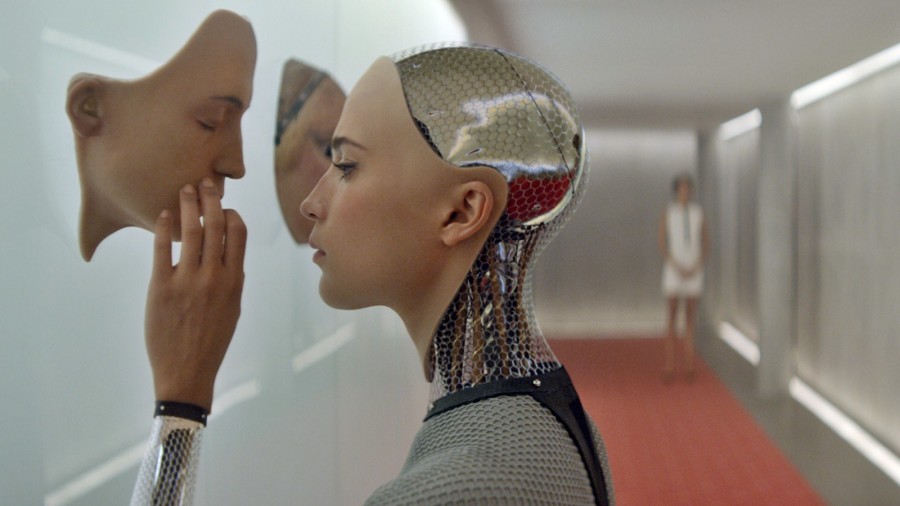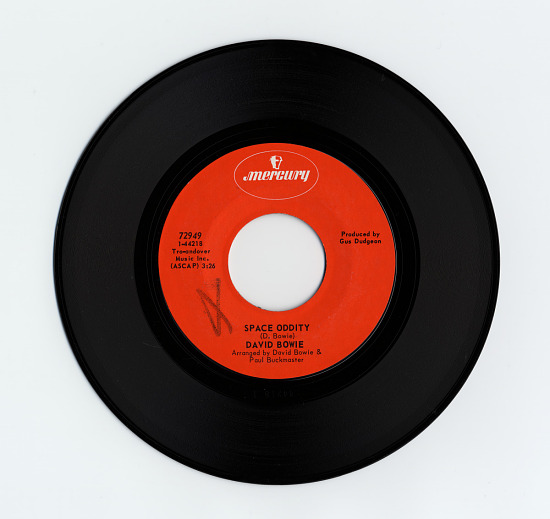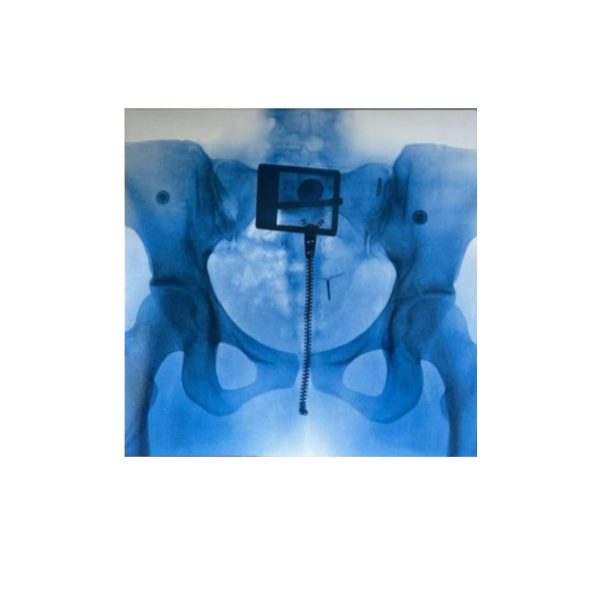“Ex Machina,” Patient, Thought-provoking, and Altogether Scarily Realistic Sci-fi
Directed by Alex Garland.
Starring Domhnall Gleeson (as Caleb), Oscar Isaac (as Nathan), and Alicia Vikander (as Ava).
2015 – 108 minutes.
Rating: ![]() for graphic nudity, language, sexual references and some violence.
for graphic nudity, language, sexual references and some violence.
Talented computer coder Caleb has recently won a contest to work with the head of his company, Nathan, in his estate for a week. It is soon revealed that Nathan is working on an elaborate system of artificial intelligence, and he has brought Caleb to test it out. Nathan then explains he will be using the Turing Test, in which a computer is tested by how eloquently it can exhibit human characteristics, while the tester is still shown that it is not a human. They test Ava, the most advanced current A.I. being. Herein, conflicts arise.
“Ex Machina” is an intoxicating, scarily realistic film about technology and its potential. Or is it really “potential” or what possibly has already been invented? Elaborating upon this sentiment more would only allow one to go into spoiler territory, a place you don’t want to be before seeing the movie. One of its biggest successes is how it serves as a perfect example of how sci-fi movies on small scales can always be just as thrilling as sci-fi movies on big scales. First-time director Alex Garland, the screenwriter of cult favorites such as “28 Days Later,” “Sunshine” and “Dredd,” doesn’t mistake stakes for scale. The movie is one riveting ride but not as much because of grand set pieces and fast-paced action and more so because of the steady build-up and development of the dynamics between these characters.
Oscar Isaac steals nearly every scene he’s in as Nathan, the billionaire C.E.O. of the company Nathan works for. Soon to be in the next “Star Wars” movie, he has demonstrated that he’s more than competent with some of his recent work (“Inside Llewyn Davis,” most notably). Here, though, he takes on the eccentric role of someone who is equally funny as he is intimidating—something that only someone like Isaac could pull off. Also standing out is Alicia Vikander as the Ava, the A.I. She exhibits just enough humanity and gets across plenty of nuanced robotic mannerisms, truly selling the role. It’s subtle, subtle work.
On a technical level, it is nearly flawless—the polished, glossy look, the steadily moving camera, and Geoff Barrow and Ben Salisbury’s chilling score, which almost feels like a character in the movie. With “Ex Machina,” Garland has also proven that he absolutely knows how to make good use of a budget. For the likes of a roughly $12 million dollar production (it was actually made on a budget of €11,000,000), the artificial intelligence special effects are pretty seamless and don’t draw much attention to themselves.
Without spoiling anything, the film’s final moments reveal something haunting about what technology is capable of. Quite frankly, it wouldn’t be all that surprising if some were turned off by the idea of artificial intelligence just because of what happens in the closing act. “Ex Machina” is a thought-provoking, unconventional piece of sci-fi that will get under the audience’s skin. It also features a scene in which Oscar Isaac shows off his disco dance movies, which is worth the price of admission alone.
Overall, “Ex Machina” gets the rating of [A-].









